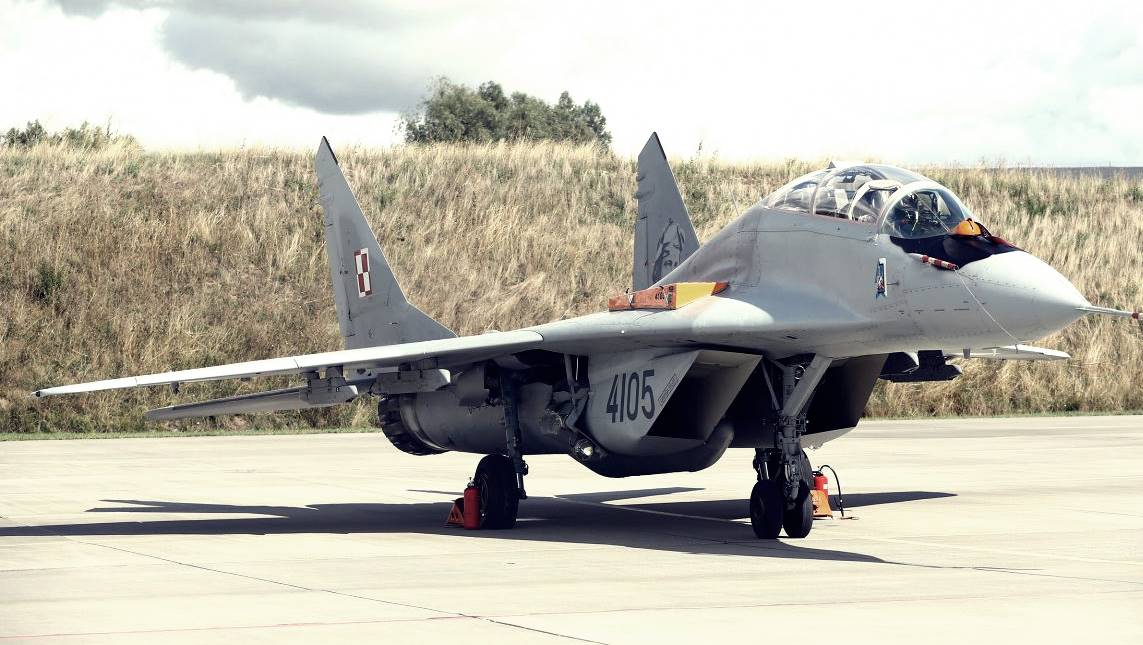
Poland owns fighter jets, for which Ukrainian pilots are also trained. The country is ready to hand over all of its MiG-29s to the US, which will then hand them over to Ukraine. But the United States is now rejecting this idea.
The US has rejected Poland’s offer to deliver fighter jets to the US base in Ramstein for subsequent transfer to Ukraine to fight Russia. “We will continue to consult with Poland and our other NATO allies on this issue and the difficult logistical challenges involved, but we do not believe that the Polish proposal is tenable,” Pentagon spokesman John Kirby said on Tuesday evening (local time).
Poland had previously agreed to a proposal by EU foreign ministry chief Josep Borrell, who first publicly circulated the idea: Poland was ready to give up its old Soviet-designed MiG aircraft in order to transfer them to Ukraine, one said Press release from the Polish Ministry of Foreign Affairs. However, it did not mention Ukraine. Rather, Warsaw wanted to use a legal trick to keep Poland from being targeted by Russia.
“The authorities of the Polish Republic, after consultations with the President and the Government, are ready to transfer all their MiG-29 aircraft to the Ramstein Air Force Base – immediately and free of charge – and place them at the disposal of the United States Government,” it said in the press release on the website of the Polish Ministry of Foreign Affairs. The idea: The USA should then pass the aircraft on to Ukraine. In return, the Poles asked the US to provide them with used aircraft with comparable operational capabilities. “This is our solidarity and our contribution,” tweeted Jakub Kumoch, State Secretary in the Polish President’s Office and responsible for international politics there.
Poland still has 28 MiG jets that have been retrofitted with NATO transponders and should gradually be phased out. The country got the machines from Germany at the beginning of the 2000s for the symbolic sum of one euro.
In fact, there had apparently been feverish behind-the-scenes negotiations over the past few days over the transfer of the MiGs, as pressure had mounted enormously, particularly in the US, to help the Ukrainians offset Russian air superiority. They had repeatedly vehemently demanded that the West set up a no-fly zone in Ukraine in order to curb the ongoing Russian shelling of Ukrainian cities and the deaths of many civilians. However, this would have entailed the risk of direct military confrontations between NATO and Russia, which NATO was not ready for.
The Eastern European MiGs, which, unlike more modern Western fighter jets, can be flown by Ukrainian pilots without further training, would be the second-best solution to making Ukraine less vulnerable to air attack. They would also allow Kyiv to conduct airstrikes on Russian positions and convoys, which previously have been largely avoided for fear of losing the small number of jets Ukraine itself still has.
The creative deal would meet two fundamental concerns of the Poles. On the one hand, Warsaw did not want to be directly targeted by Moscow with this transfer. Now they could say that they are only handing over the jets to the USA. And what they do with it is up to them.
From the perspective of international law, this deal would not be problematic for either Poland or the US, because supplying arms to an illegally attacked country does not mean that the supplying states take part in the war. However, it remains unclear how the Ramstein planes will be transferred to Ukraine. Above all, it would be questionable who would transfer the planes, what national emblems they would be equipped with for the transfer and whether they would fly to Ukraine armed or unarmed. It would also be unclear whether Germany would be legally affected by the deal in any way, after all, the air force base in Ramstein is German sovereignty.
Above all, the United States no longer seems convinced of the deal. On Sunday, US Secretary of State Antony Blinken said during a visit to Moldova that the US was “actively considering the issue of planes that Poland could supply to Ukraine.” At the same time, Washington is examining how it can fill the gap “should Poland decide to deliver these planes.”
On Tuesday evening, US Secretary of State Victoria Nuland expressed surprise at the Polish statement. “I think that was a surprise move by Poles,” the US State Department’s No. 3 told a congressional hearing. At the same time, Nuland said that consultations with Poland on the subject had been going on for days. Even when asked several times, she did not want to commit to the USA taking part in the handover of the aircraft. Pentagon spokesman John Kirby later called Poland’s offer “untenable.”

